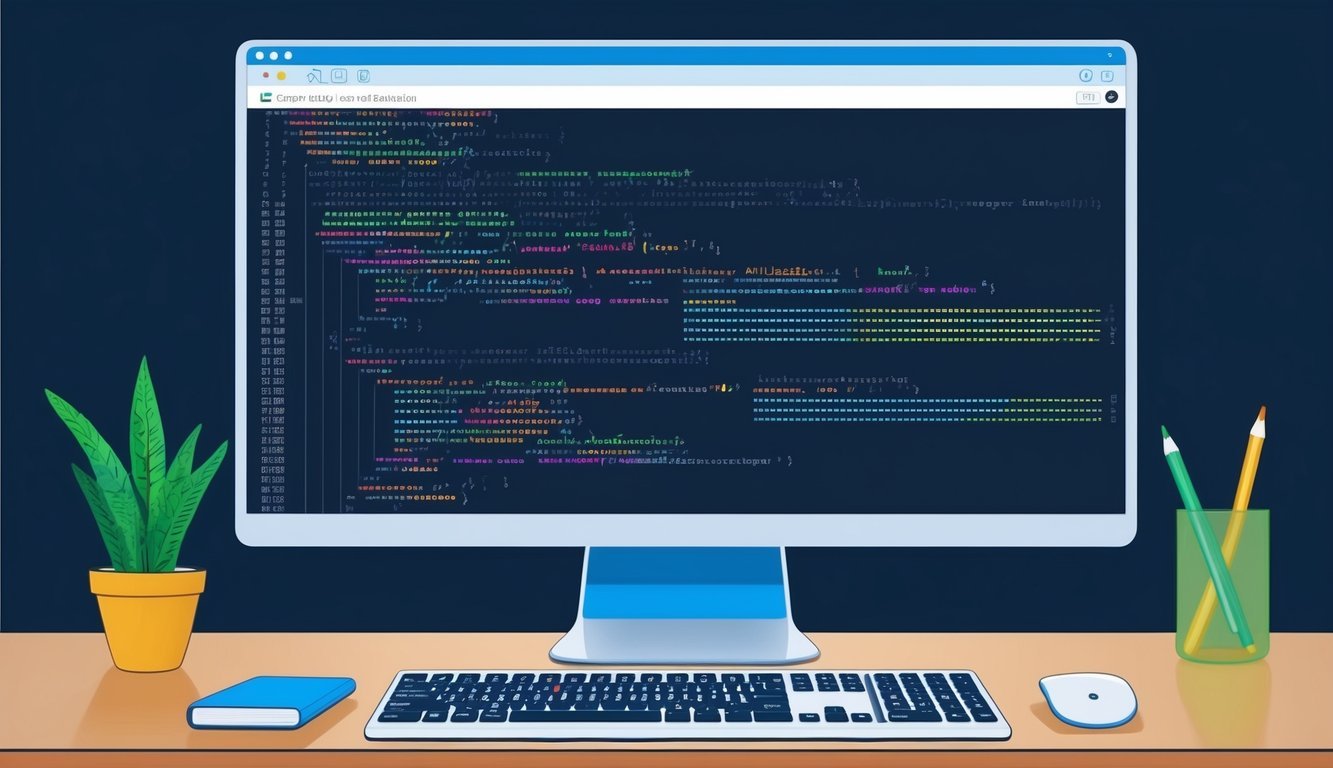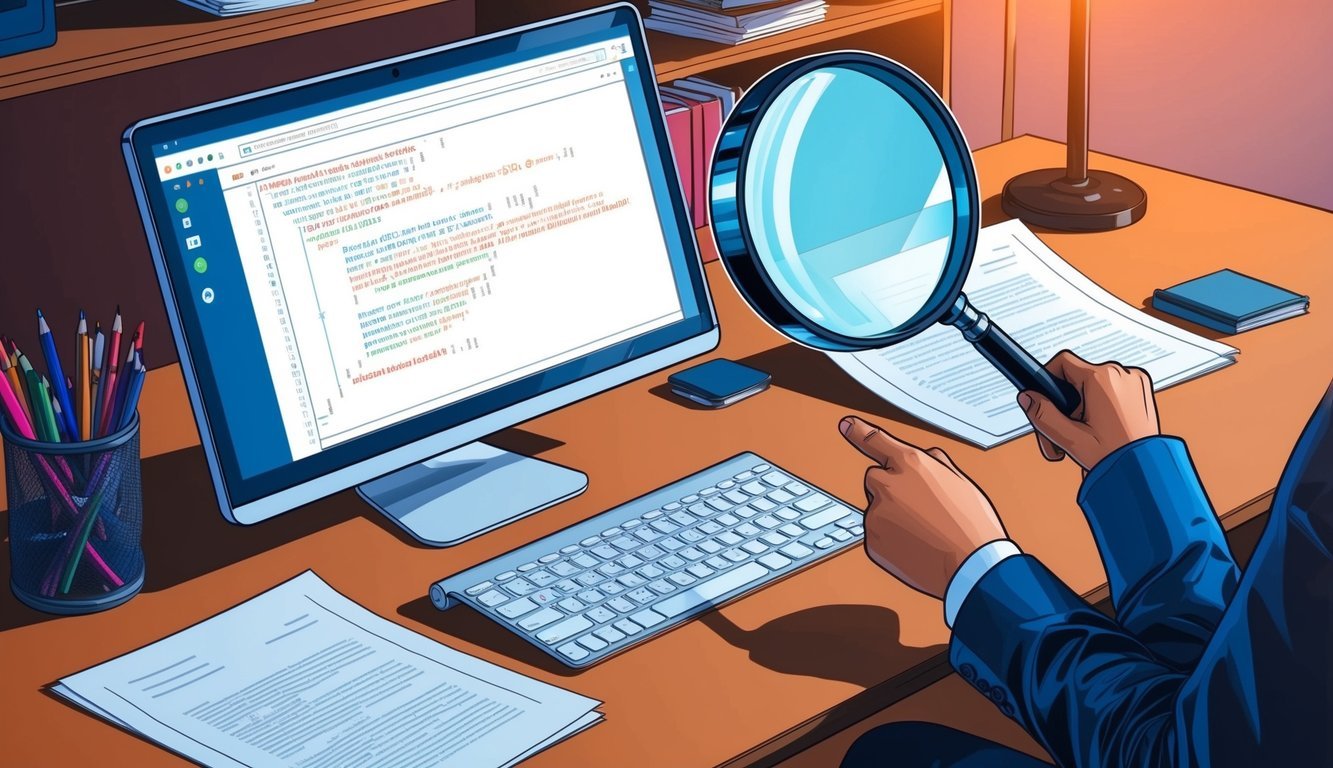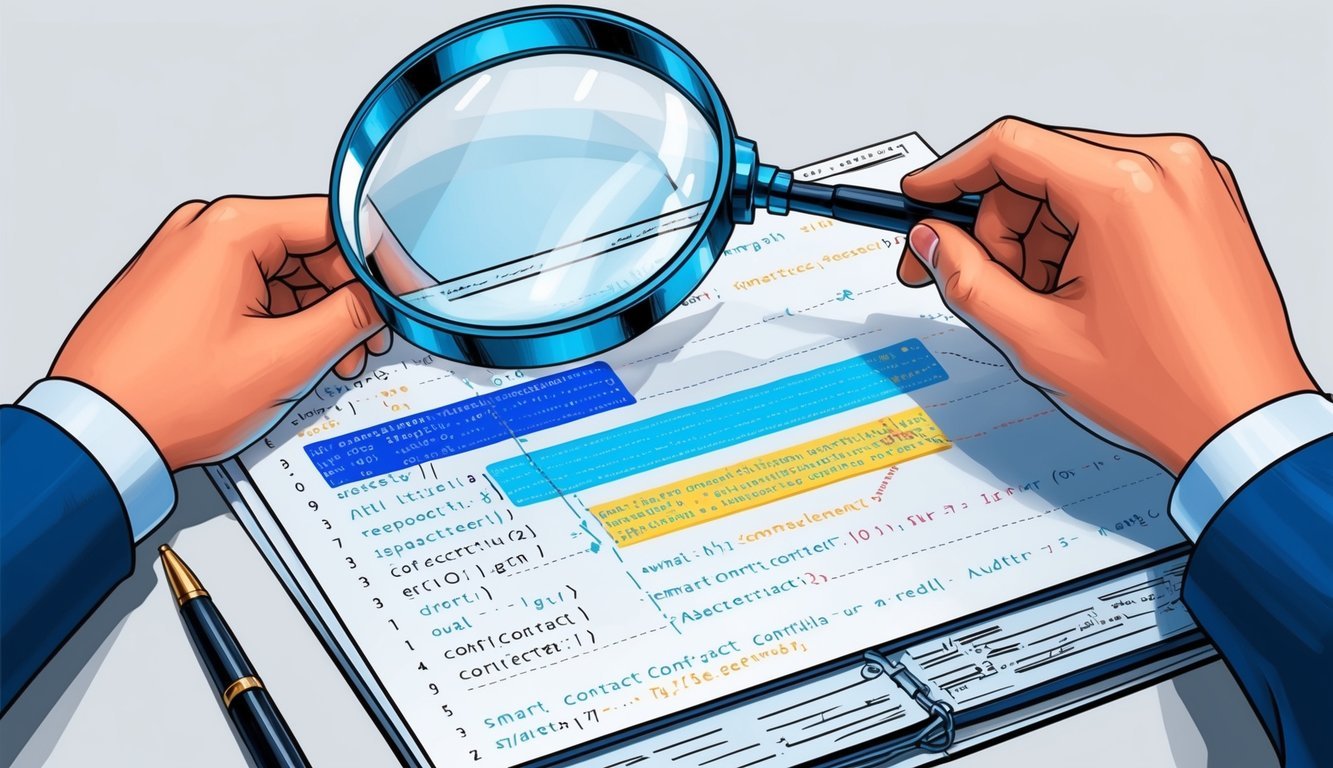Smart contracts are cool, but they can be tricky. These digital agreements run on blockchain tech and handle lots of important stuff. That’s why smart contract audits are a big deal. They help catch bugs and keep your digital assets safe.

Smart contract audits check the code to find problems before they cause trouble.
Think of it like a safety check for your car, but for computer code. When you use smart contracts, you want to be sure they work right and keep your money safe.Audits are super important in the blockchain world. Once a smart contract is out there, you can’t change it. So it’s key to get it right the first time. A good audit can spot issues you might have missed and give you tips to make your contract better and safer.
Key Takeaways
- Smart contract audits find and fix problems in code before it goes live.
- Audits are crucial for building trust in blockchain tech and keeping digital assets safe.
- Getting your smart contract checked can save you from big headaches and money loss later on.
Fundamentals of Smart Contract Audits
Smart contract audits help keep blockchain projects safe and working right. They find problems before bad stuff happens.
Purpose and Importance of Audits
Smart contract audits check code for bugs and weak spots. They make sure contracts do what they’re supposed to do. Audits help stop hackers and keep users’ money safe.
Over 74,000 security issues were found in smart contracts in 2023. That’s a lot of ways hackers could attack! Audits catch these issues early.
When contracts have problems, people can lose a ton of money. Audits help stop that from happening. They also make users trust the project more.
Types of Smart Contract Audits
There are different kinds of audits for smart contracts:
- Manual audits: Experts look at the code line by line.
- Automated audits: Special tools scan the code fast.
- Formal verification: Math checks if the code works right.
Some audits happen before the contract goes live. Others check it after it’s running. You might need both types for your project.
Understanding Audit Processes
The audit process has a few steps:
- Planning: You and the auditors decide what to check.
- Code review: Auditors look closely at your contract’s code.
- Testing: They try to break the contract in different ways.
- Reporting: You get a list of what they found.
- Fixing: You fix the problems they spotted.
Auditors use special tools to test your code. They also think like hackers to find weak spots.
After the audit, you’ll know how safe your contract is. You’ll also learn how to make it better.
Key Components of a Thorough Audit

Smart contract audits involve several crucial steps to find and fix problems. These steps help make sure the code is safe and works well.
Automated vs Manual Review
You’ll want to use both automated tools and human experts to check your smart contracts. Automated security audit tools can quickly scan code for common issues. They’re great for finding simple mistakes and known vulnerabilities.
But don’t skip the manual review! Human auditors can spot tricky problems that tools might miss. They look at how different parts of the code work together and think about ways someone might try to attack it.
A good audit combines both approaches. Start with automated scans, then have experts go through the results and dig deeper.
Static and Dynamic Analysis
Static analysis looks at the code without running it. It’s like proofreading a book. This helps find syntax errors and potential security holes.
Dynamic analysis runs the code to see how it behaves. It’s like a test drive for your smart contract. This can uncover issues that only show up when the contract is used.
You should use both types. Static analysis catches a lot upfront, while dynamic tests find problems that only appear in action.
Common Security Vulnerabilities
Smart contracts can have several weak spots. Here are some big ones to watch out for:
- Reentrancy: When a function can be called again before it’s finished
- Integer overflow: When numbers get too big for the space they’re given
- Timestamp dependence: Relying too much on block timestamps, which can be slightly off
Gas limitations can also cause trouble. Make sure your contract doesn’t use too much gas or it might fail.
Regular audits help catch these issues. They’re a key part of keeping your smart contracts safe and working well.
Beyond the Audit: Reporting and Remediation

After the audit wraps up, you’ll get a report with findings and recommendations. This is where the real work begins. You’ll need to understand what the auditors found and figure out how to fix any issues.
Interpreting Audit Reports
Audit reports can be tricky to read. They’re usually packed with technical jargon and complex details. But don’t worry – you can break them down into manageable chunks.
First, look for a summary of findings. This gives you a quick overview of what the auditors discovered. They often rank issues by severity – critical, high, medium, and low.
Next, dive into the detailed findings. Each one should explain:
- What the issue is
- Where it was found in the code
- Why it’s a problem
- How it could be exploited
Pay close attention to critical and high-severity issues. These pose the biggest risks to your smart contract.
Implementing Recommendations
Once you understand the audit findings, it’s time to fix them. This process is called remediation.
Start with the most severe issues. Work closely with your dev team to address each finding. Some fixes might be simple, while others could require major code changes.
Keep track of your progress. Create a checklist of all the findings and mark them off as you go. This helps you stay organized and ensures nothing slips through the cracks.
After you’ve made the fixes, it’s a good idea to get a follow-up audit. This confirms that your changes solved the original problems without creating new ones.
Role of Audits in the Blockchain Ecosystem
Smart contract audits play a crucial part in keeping blockchain systems safe and trustworthy. They help protect users’ money and make decentralized finance work better.
Enhancing User Trust and Transparency
Smart contract audits boost your confidence in blockchain projects. When experts check the code, you can feel safer using decentralized apps. These audits look for bugs that could put your money at risk.
Audits also make things more see-through. You get to know what’s going on behind the scenes. This openness helps you make smarter choices about where to put your crypto. With clear insights from audits, you can evaluate various investment opportunities with greater confidence. Additionally, this increased transparency allows you to create a ramp crypto asset overview, ensuring you understand the risks and benefits associated with each asset. Ultimately, this knowledge equips you to navigate the crypto landscape more effectively and make decisions that align with your financial goals.
Some audit firms share their findings publicly. This lets you see exactly what they found and fixed. It’s like getting a peek under the hood of your car before you buy it.
Impact on Decentralized Finance (DeFi)
In the world of DeFi, audits are super important. They help keep your digital cash safe when you’re lending, borrowing, or trading.
Smart contract audits can catch problems before they cause trouble. This protects you from losing money due to code errors. It’s like having a security guard for your online wallet.
Audits also help DeFi projects grow. When a project passes an audit, more people trust it. This can lead to more users and more money in the system.
But remember, an audit doesn’t guarantee 100% safety. You should still be careful and do your own research before using any DeFi platform.
Frequently Asked Questions
Smart contract audits involve several key steps and tools. People often wonder about the costs, security indicators, and career prospects in this field.
What are the basic steps involved in a smart contract audit?
The audit starts with code review and security checks. You’ll look for bugs and vulnerabilities. Next, you’ll test the contract’s functionality and edge cases.
Gas optimization is another crucial step. You’ll also check external dependencies and deploy the contract on a testnet for simulation.
How can you tell if a smart contract is secure?
A secure smart contract has clear, well-organized code. It’s been through multiple audits by reputable firms.
Look for contracts that follow best practices and have addressed common vulnerabilities. A history of safe operation on the blockchain is also a good sign.
What tools are popular for auditing smart contracts?
Many auditors use tools like Mythril, Slither, and Manticore. These help spot potential issues automatically.
Other popular choices include Echidna for fuzzing and Surya for visualization. Some auditors also use custom scripts tailored to specific contract types.
Is it expensive to get a smart contract audited?
Audit costs vary widely based on contract complexity and the auditor’s reputation. Simple contracts might cost a few thousand dollars.
Complex DeFi protocols can run into tens of thousands. Some top firms charge even more for high-stakes projects.
Can someone learn how to audit smart contracts online?
Yes, you can learn smart contract auditing online. Many resources are available, from free tutorials to paid courses.
Platforms like Coursera and Udemy offer relevant classes. You can also join blockchain developer communities and practice on open-source projects.
What kind of salary can a smart contract auditor expect?
Smart contract auditors often earn high salaries due to the specialized nature of their work. Entry-level positions might start around $80,000 per year.
Experienced auditors at top firms can make well over $200,000 annually. Freelance auditors might charge $100-$500 per hour, depending on their expertise.





